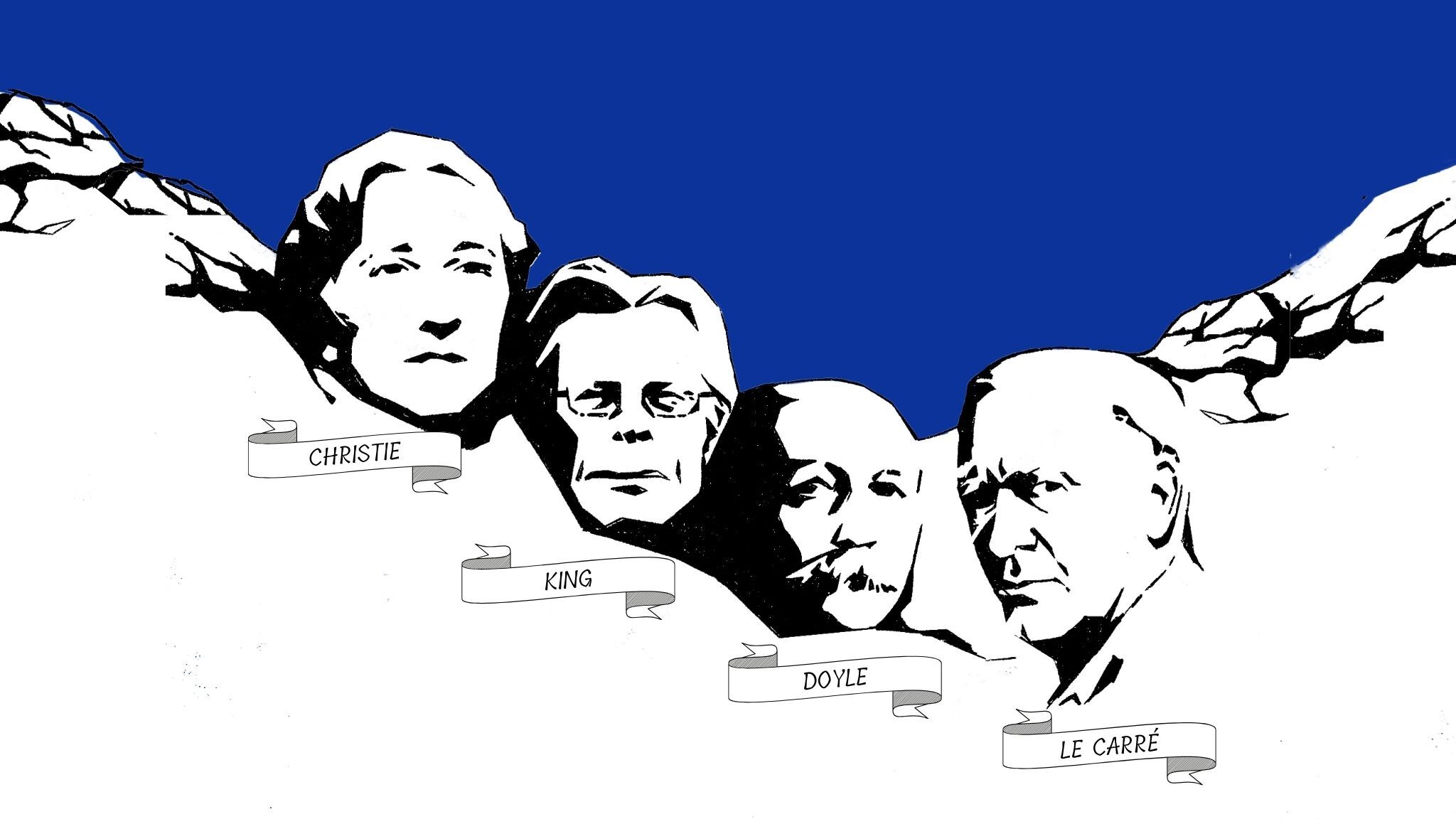If the thriller genre had its own Mount Rushmore, which four authors would be on it?
With BookTrib.com celebrating its landmark 20th year, what better time to create a fictitious landmark of our own to salute four masters of the genre?
After much discussion on social media and heated debate among the editorial team, BookTrib has chosen for the first-ever (to our knowledge) Mount Rushmore of Thriller Authors: Agatha Christie, John Le Carré, Arthur Conan Doyle and Stephen King.
While there were no strict criteria for selection, BookTrib considered breadth of work, influence, impact, stature and popularity.
The process began as a question posed on social media platforms. The topic drew many nominations and spirited conversation. BookTrib used the nominations as a starting point for guidance in selecting what it felt was a representative Final Four.
“We thought the topic would be fun and thought-provoking,” says BookTrib Editorial Director Jim Alkon. “We enjoyed following the discussions and were not surprised at how opinionated our audience is.”
While too many authors to name were mentioned by readers as candidates for the Mountain, some came up several times for consideration even if they didn’t make the final cut. Among them: Mary Higgins Clark, Stieg Larsson, Kate Atkinson, Harlan Coben, Raymond Chandler, Dashiell Hammett, John Grisham, Tom Clancy and Ian Fleming. A case could be made for each of them.
Here is a closer look at the four authors selected:
AGATHA CHRISTIE, the queen of the whodunnit, is listed in the Guinness World Records as the bestselling fiction writer of all time, best known for her 66 detective novels and 14 short story collections, as well as the world’s longest-running play — The Mousetrap. Her books, said to equip readers with problem-solving techniques, visual and auditory perceptiveness, and regional knowledge, have sold over a billion copies in the English language and a billion in translation. She was presented with a damehood by Queen Elizabeth II for her services to literature in 1971.
As a former spy himself, JOHN LE CARRÉ was able to write with such conviction and authority about the world of espionage that he has had a major influence on modern intelligence agencies and the next generation behind them. By so thoroughly capturing the life and realities of spies and the spy game, he has successfully changed public perception that it is not the glamorous profession as the James Bonds of fiction would have you believe. He set the standard for future generations of authors who followed his pioneering role. What’s more, his novel, The Spy Who Came in From the Cold, is often cited as the greatest spy novel of all time.
During the 20th century, it has been said that only Mickey Mouse has rivaled Sherlock Holmes as the most recognizable fictional character in the world — the creation, of course, of ARTHUR CONAN DOYLE. Through his ingenious ways of solving crimes, Doyle contributed much to the field of modern forensic science. This choice was, well, elementary, as Holmes, the master detective of all time, is regarded as a milestone in the field of crime fiction and has inspired generations of intelligent, witty, quirky and thought-provoking leading characters in the thriller genre. The commercial success of the Sherlock Holmes stories can hardly be overstated: He has been featured in more than 100 films, 700 radio dramas, and 2,000 stories and novels.
Perhaps no thriller author has had a greater impact as a guiding force in American culture than STEPHEN KING. The so-called King of Horror has published 65 novels and sold over 400 million books. His body of work, through his tales and his characters, has helped influence our perceptions of fear, storytelling, and major societal issues. But it’s not all about fear — King’s work has spanned major topics and phobias in his widespread exploration of the human condition, even with its firm slant to the darker side. What’s more, his work has inspired many other great storytellers, through both film and the written word.
Do you agree with our selections, or do you think we missed the target? Join the conversation with us @booktrib on your favorite social media platform.




